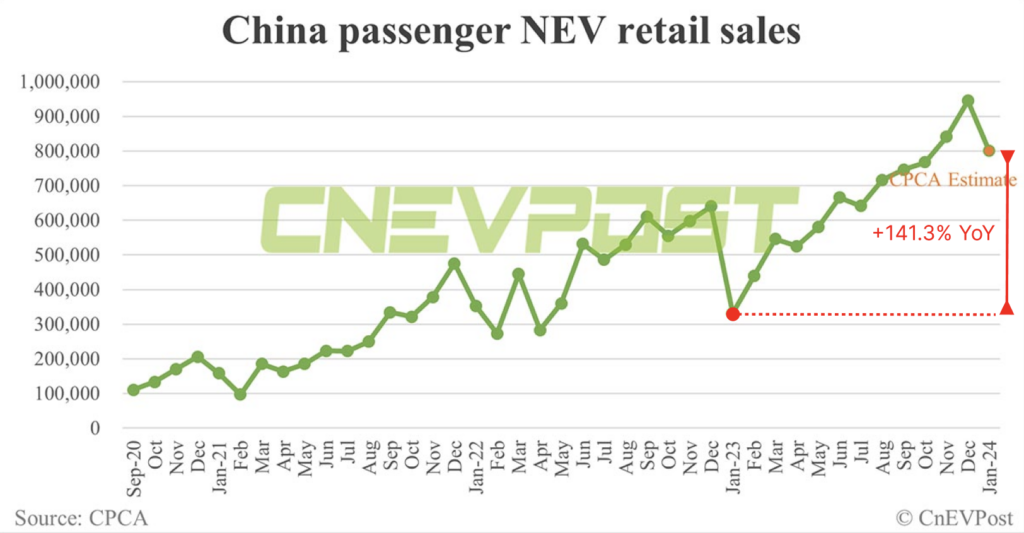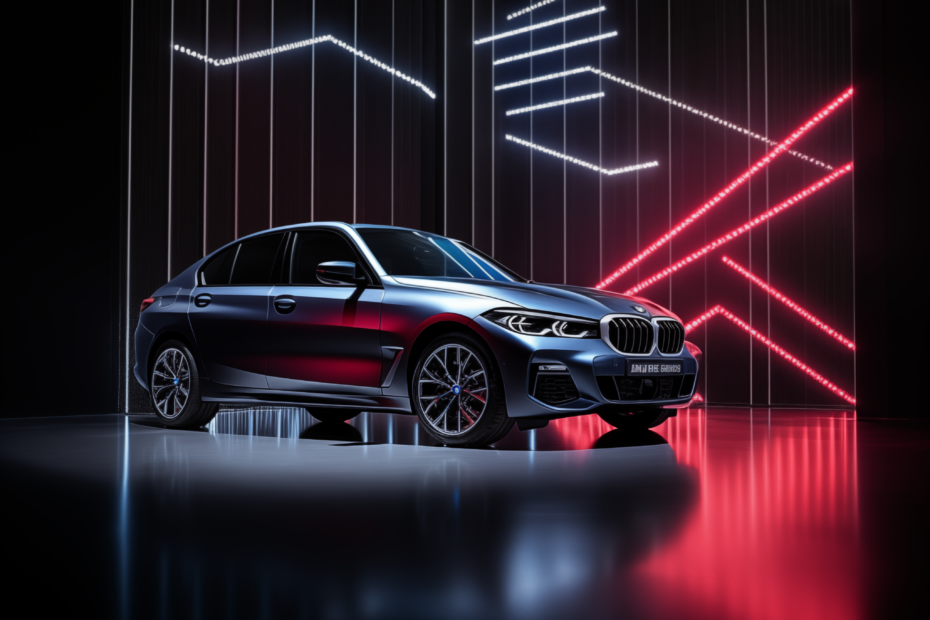In the rapidly evolving landscape of the automotive industry, electric vehicles (EVs) have taken center stage, heralding a new era of transportation. Major automakers are reporting record-breaking sales and expressing unwavering conviction in the future of EVs. However, a closer examination reveals a complex narrative, with a juxtaposition between slowing overall sales and the remarkable growth figures reported by industry giants. This article delves into the recent trends, the resurgence of hybrid vehicles, and the significant growth in China’s New Energy Vehicle (NEV) market, providing insights into today’s EV market dynamics.
BMW and Mercedes-Benz: Pioneers at the Forefront
BMW has declared a “tipping point” in its shift from gas-powered cars to EVs. With a staggering 74% increase in EV sales last year, the German automaker’s strategy is clear: electric is the future. The introduction of models like the BMW iX1, i4, and the i5 underscores BMW’s commitment to providing an all-electric option in each of its main segments. Similarly, Mercedes-Benz has set a new record in the EV market, with over 222,000 all-electric cars sold in 2023, accounting for about 11% of the brand’s total volume. These figures are not just numbers; they represent a profound shift in the industry’s direction and consumer preferences (Electrek, InsideEVs).
The Resurgence of Hybrid Cars: A Transitional Phase
Amidst the EV boom, hybrid cars are experiencing a renaissance. Automakers such as Ford, Kia, and Toyota are expanding their hybrid offerings, targeting consumers who are hesitant to fully commit to electric vehicles. The reasons are multifaceted: high electric car prices, concerns about charging infrastructure, and the convenience of hybrids. For instance, Ford’s decision to increase the production of the F-150 Hybrid and its plans to quadruple overall hybrid production reflect a strategic response to market demands. This resurgence indicates a transitional phase in the automotive industry, where hybrids serve as a bridge between traditional combustion engines and fully electric vehicles (Archive.is).
China’s NEV Market: A Glimpse into the Future
China’s NEV market offers a glimpse into the future of EVs globally. Despite a seasonal dip in sales compared to December, the year-on-year growth is staggering, with an 141.3% increase expected in January. While the month-to-month figures may show variability, the focus should be on the year-on-year growth, which paints a picture of robust expansion. The Chinese market’s embrace of NEVs, with a penetration rate expected to be around 36.4% in January, is a testament to the country’s pivotal role in shaping the global EV narrative (CnEVPost).

Market Dynamics: The Real Picture
The automotive industry’s landscape is marked by a juxtaposition of trends. On one hand, there are reports of slowing sales and a growing preference for hybrids. On the other, major automakers are reporting record sales and doubling down on their commitment to EVs. The key to understanding this juxtaposition lies in recognizing the multifaceted nature of the market. Seasonal fluctuations, such as the dip in China’s NEV sales compared to December, should be viewed in the context of the impressive year-on-year growth.
The Road Ahead: Focus on the Long-Term Vision
As the industry navigates these market dynamics, stakeholders should focus on the long-term vision. The record sales reported by major automakers like BMW and Mercedes-Benz, coupled with the strategic expansion in hybrid offerings, indicate a clear trajectory towards electrification. The Chinese market’s significant year-on-year growth in NEVs further reinforces this trend. In this transformative phase, it’s crucial for industry players and consumers alike to look beyond short-term fluctuations and understand the broader trends shaping the future of mobility.
In conclusion, the EV market is characterized by a dynamic interplay of growth, transition, and market responsiveness. As major automakers continue to invest in EVs and hybrids, and as markets like China lead the way in NEV adoption, the industry is poised for a future where electric and hybrid vehicles play a central role in defining the new age of transportation. The juxtaposition of EV sales, with its complexities and nuances, is not a sign of uncertainty but a reflection of a market in the midst of a profound transformation.
![LOGO [återskapat] LOGO [återskapat]](https://batteryjuniors.com/wp-content/uploads/elementor/thumbs/LOGO-återskapat-ozpr6tyjh3va1ifcopltktksqownqc64mplxytts9k.png)

